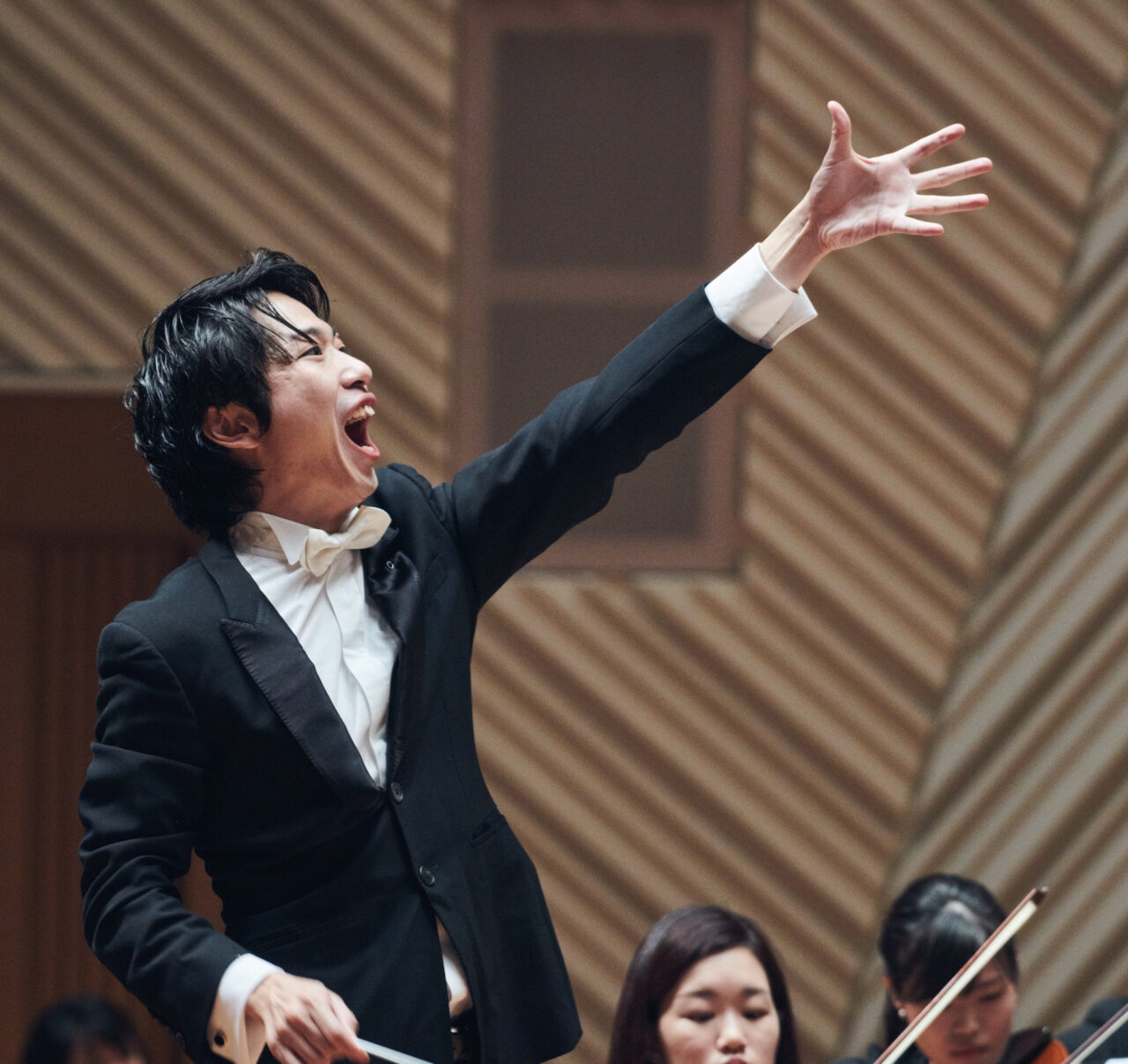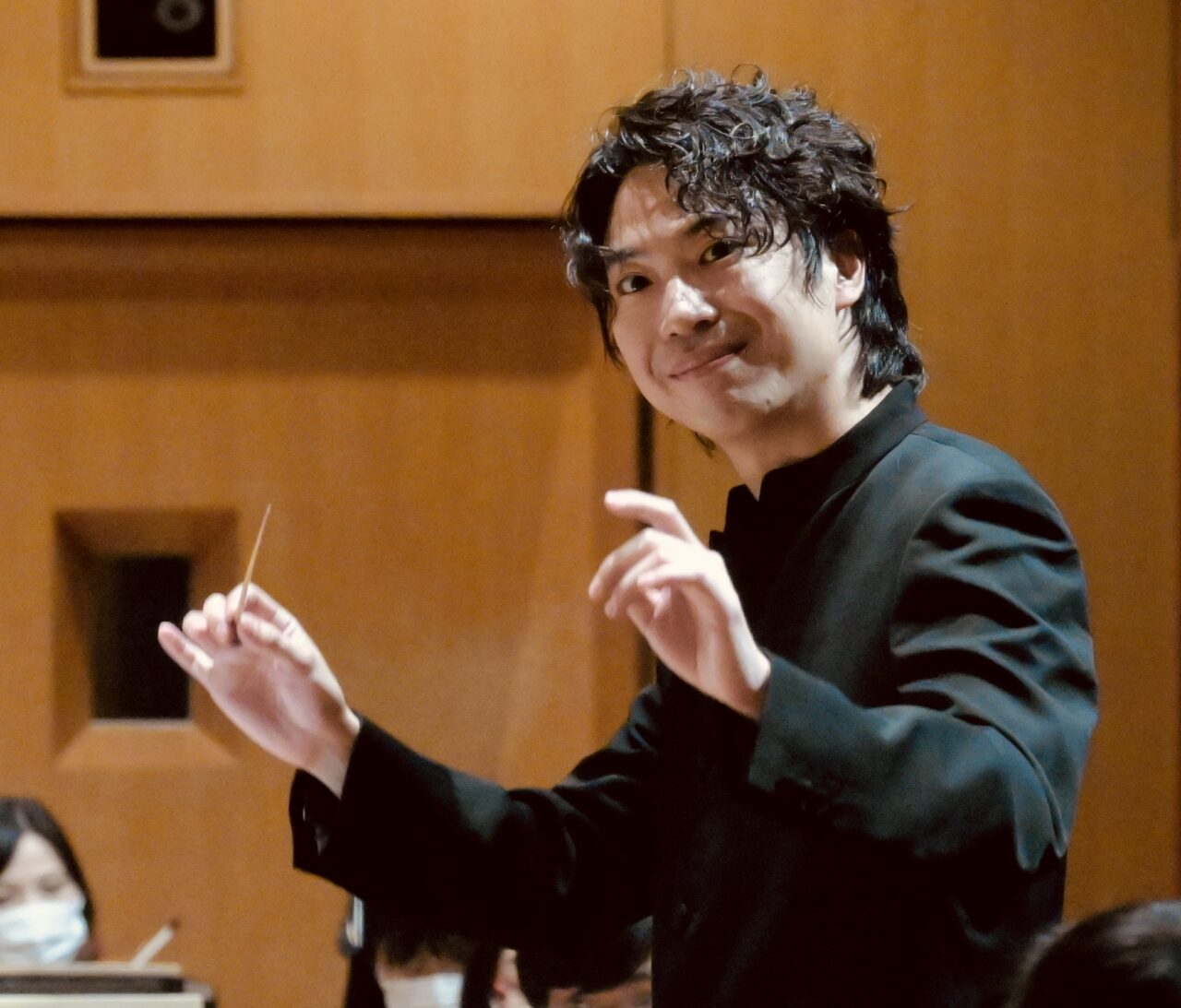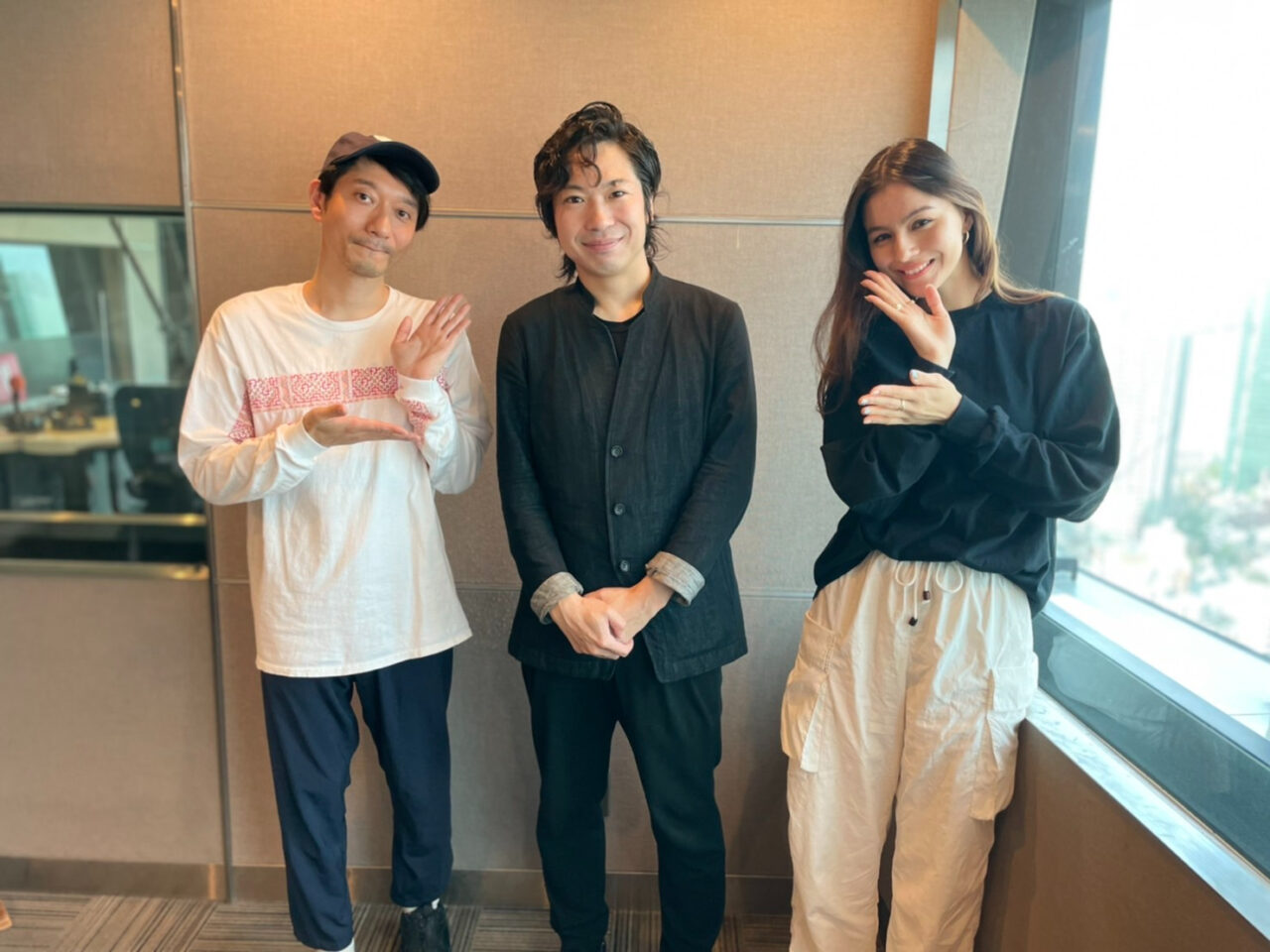A circle of friends connected by goof-touch! The radio program “GRAND MARQUEE” features “FIST BUMP” in which people who live and enjoy Tokyo appear in a relay format.
On April 19, Kensuke Yamamoto, President of Sumally, introduced Kenshiro Sakairi, a conductor. He has performed with world-class soloists and conducted numerous Japan premieres and world premieres. We asked him about his training and studies to become a professional conductor, the appeal of orchestras and classical music, and more.
INDEX
How to create an atmosphere where people want to work together is the hardest part of being a conductor.
Takano (MC): Mr. Sakairi, you have a wonderful smile. And your gestures are beautiful.
Sakairi: Thank you (haha).
Celeina (MC): The atmosphere of the conductor.
Takano: Earlier, when you were gesturing with a pen in your hand, I could see the orchestra in the background (haha). So, Mr. Sakairi, you already knew you wanted to be a conductor when you were in kindergarten. That’s early.
Sakairi: When I listened to classical CDs, I would hear different performances, for example, a different performance of “Symphony No.5 c-minor” and I would say, “This is the way I want to do it,” from kindergarten.
Takano: From early on, there was a difference. I was wondering if he could tell the difference from the beginning. What kind of practice and study do you need to do to become a conductor?
Sakairi: First of all, you have to practice the piano and other instruments in an orchestra. I used to play the cello, but I also tried playing the trumpet, flute, and percussion. I also think the first thing to learn is to be able to read music, and to study the composers who play and conduct.
Takano: That’s a wide range.
Sakairi: Yes, it is. It is better to know everything about everything. For example, music changes in various ways depending on the bowing technique of the string player, so it is important to know everything about that. When you derive from that, it is not only the study of scores and composers, but also how to communicate with the orchestra, and how to improve the atmosphere so that the music will flow better. I think you will get into the habit of thinking about various things in everything.

Celeina: So you need to be familiar with not only knowledge of music and techniques, but also with interpersonal communication?
Sakairi: I realized this when I was playing the cello, but if the conductor becomes self-centered about how he or she wants the music to be played, people will probably lose their enthusiasm. I think it is very difficult for a conductor to create an atmosphere that encourages people to work together. Of course, there are conductors who are strict. There are also conductors who get angry and yell at you, but I think that being a conductor is a profession that has an appeal that makes you want to follow this person.
Takano: It’s like a person’s life and personality are closely connected to his/her conductor.
Sakairi: Yes, I think it is very closely connected.
The experience of conducting a 550-member orchestra where I lost 5 kg in one day
Celeina: Mr. Sakairi, do you have any episodes that left a lasting impression on you as you gained experience as a conductor?
Sakairi: At first, I conducted with the idea that this is how I wanted the performance to be, or that this is how I thought the music should be. Even when I was a high school student, I was truly a conductor with a one-size-fits-all attitude. At that time, when I went to one of the rehearsals, everyone boycotted the rehearsal because they said they couldn’t keep up with this kind of practice, and there was no one in the rehearsal hall. After that, I reflected on the situation and reconsidered the fact that music is something that everyone has to be a part of, and then I realized that being a conductor is interesting.
Celeina: I see.
Sakairi: I was feeling self-centered, but when we talked about how I wanted to do it and how we could make it better, it became 120% of what I thought it should be, which is 100%. That was the moment that changed me the most as a conductor.

Celeina: In fact, if you were boycotted when you were in high school, you would be shocked. Was this switching point something that came slowly? Or was there a switch in your feelings that made you switch?
Sakairi: At that time, it was like a club activity, so the orchestra members followed me, and even though I failed once, I was determined to make the next chance interesting for everyone. It was no time to be downhearted.
Takano: Listening to you, I thought that the charm of classical music might be the bargaining between the conductor and the orchestra members.
Sakairi: Yes, it is. I think it is really a bargaining. For example, at the first rehearsal or the first time the orchestra shakes hands, the orchestra is also nervous. They don’t know what kind of conductor will be coming, and it might be a conductor who is self-satisfied. It might be difficult to understand how to swing the conductor’s baton. So, even though there are no words at the beginning, if there are 60 players, for example, they communicate with each other with 60 lines. That’s what makes me nervous, but it’s also the interesting part.
Takano: Mr. Sakairi, you have experience performing in concerts with large groups of more than 100 people.
Sakairi: Yes, I have. Including the children’s chorus, there were 400 people, and the orchestra 150, for a total of 550 people. At the first rehearsal in that hall, everyone was looking at me, 550 eyes, 1100 eyes, and I was so nervous that my hands were shaking and my legs were trembling, but once I lowered my arm, the music started to flow, and I immersed myself in the music. That was the only way I could get through it. That day, we rehearsed in the morning and performed at night, and when I weighed myself, I had lost 5 kilograms (haha).
Celeina: Five kilograms in one day!
Takano: I wonder if that is possible. ……
Sakairi: I was probably sweating too, but more than that, I think my mental ……. The song is an hour and a half long, so I think I’m getting a good cardio workout too.
Takano: You sound like an athlete.
Celeina: I would like to send you a song that you will conduct.
Sakairi: I would like to send you a CD of a live recording of a piece I did with a 550-piece orchestra and chorus. I would like you to listen to the last part of Mahler’s Symphony No. 8, “Symphony of a Thousand”.
〜The music is playing.
Takano: This piece is actually 80 minutes long, so I would like to listen to it again from the beginning.
Sakairi: I would like you to listen to it live.
Celeina:“FIST BUMP” has been introduced to you by your friends, what kind of people do you introduce to us, Mr Sakairi?
Sakairi: Yes, I do. I would like to introduce Kaori Chiba, CEO of kaeka, a venture company that trains people how to speak.
Takano: Speech training. What kind of connection is that?
Sakairi: She was a junior member of my orchestra. She plays the violin. She had a different aura about her since she was a university student, and she spoke very well. Since that time, she has won awards for winning speech contests and for her speechwriting skills, and she has even created a venture company that conveys her talent.
Celeina: Thank you very much. Tomorrow, we will connect with Kaori Chiba, CEO of kaeka, a venture company that trains people how to speak. Thank you very much, Kenshiro Sakairi.
Sakairi: Thank you very much.

GRAND MARQUEE

J-WAVE (81.3FM) Mon-Thu 16:00 – 18:50
Navigator: Shinya Takano, Celeina Ann






















